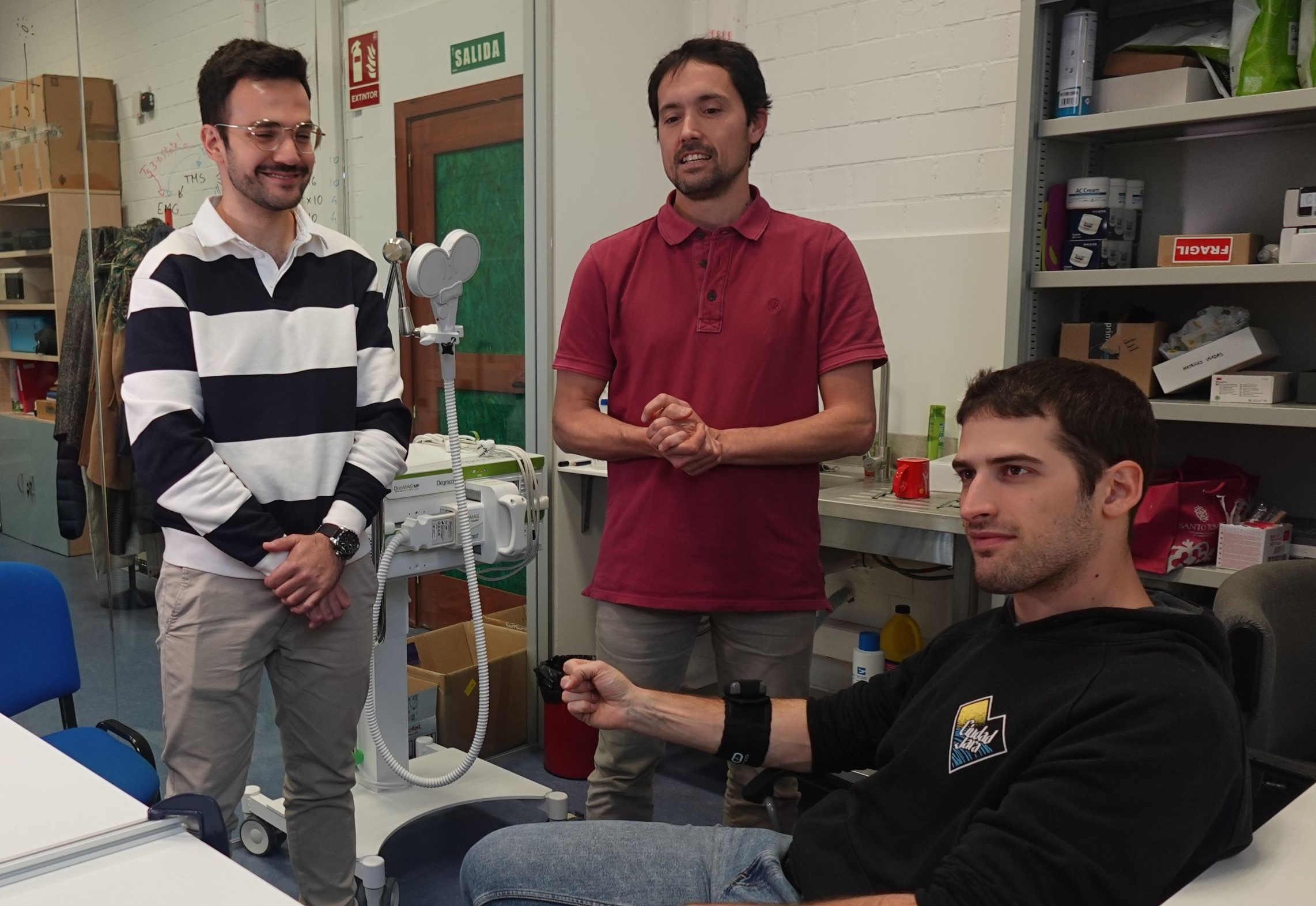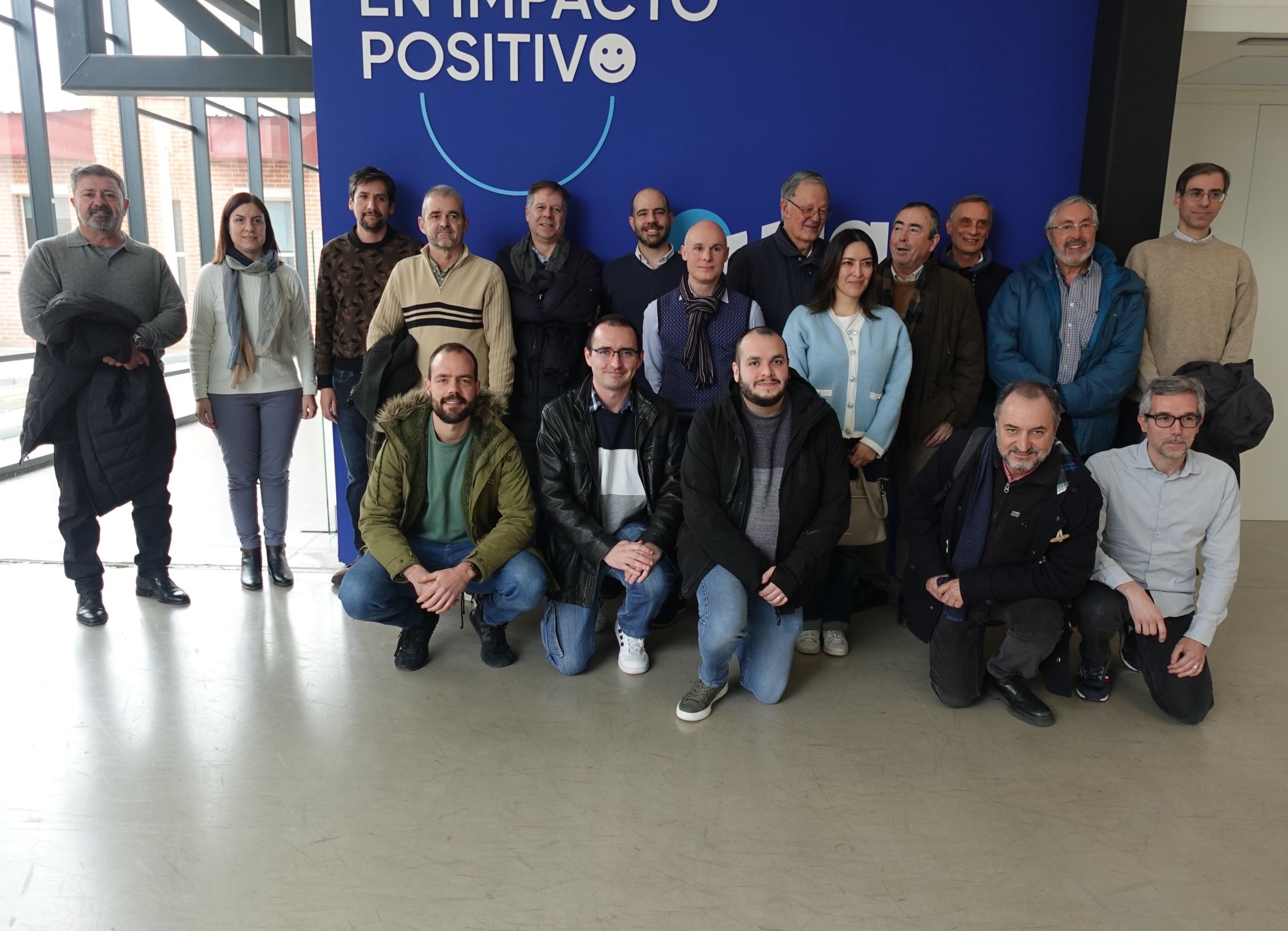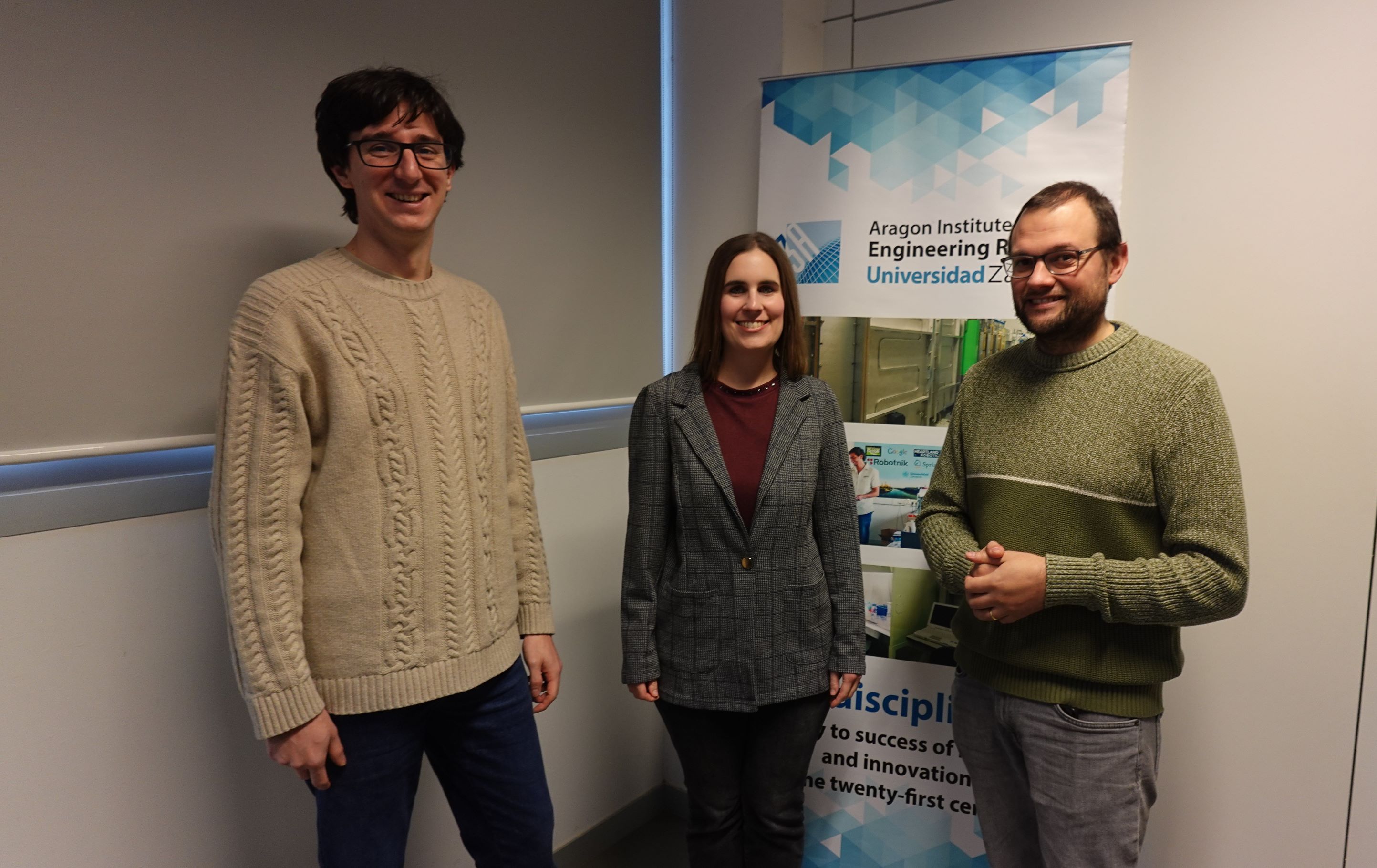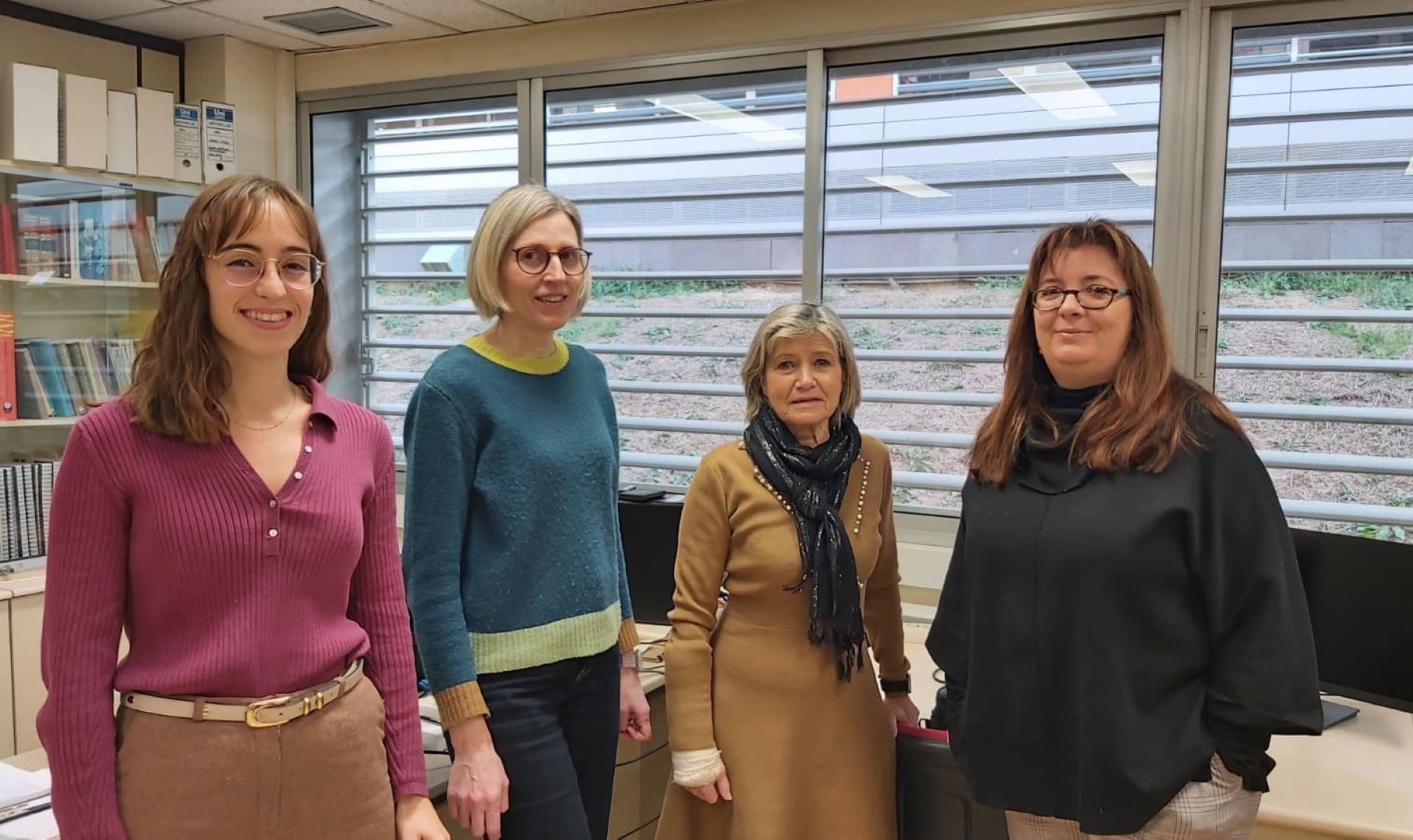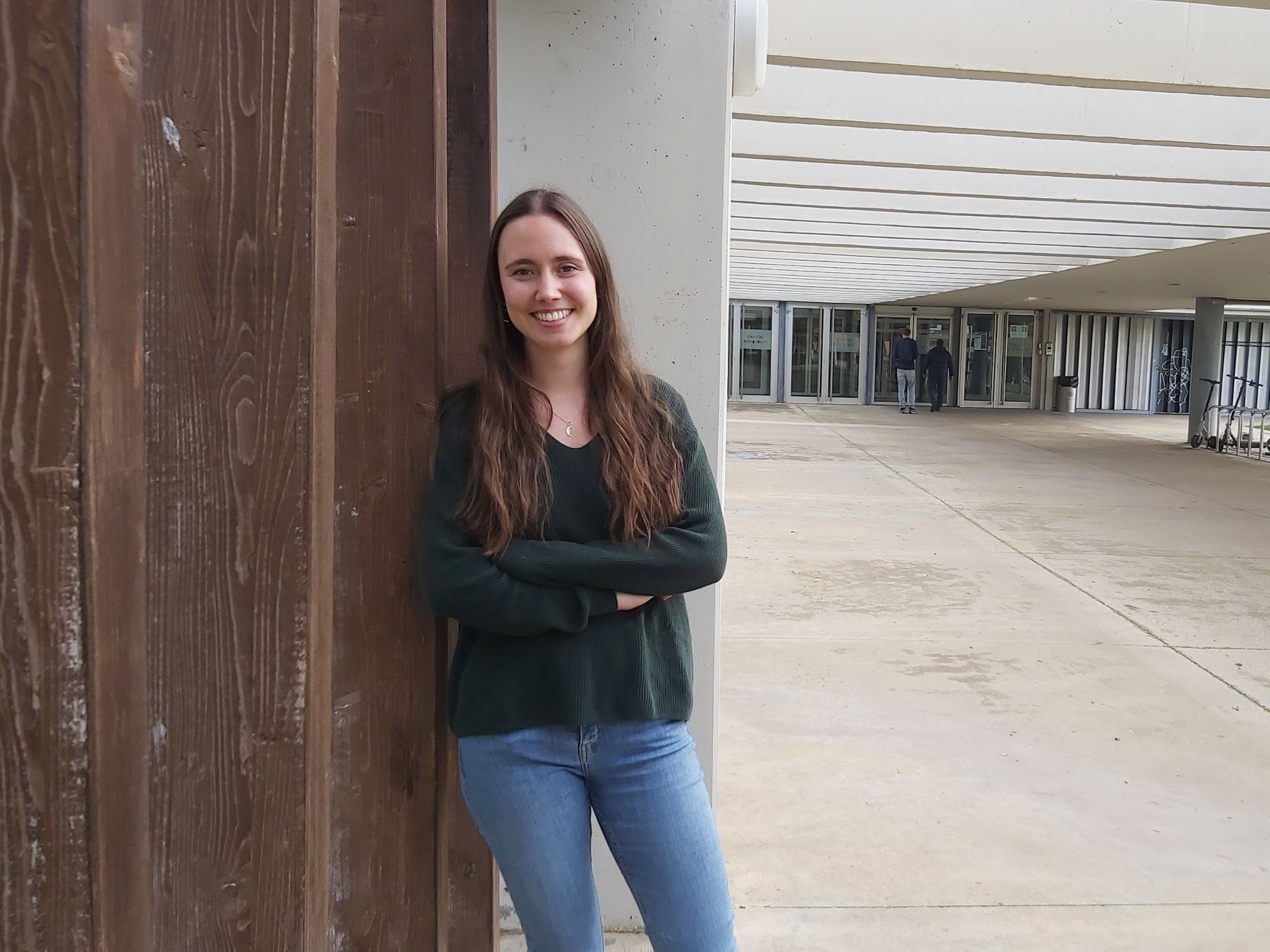
The young I3A researcher, Ángela Pérez Benito, is working on the development of a ‘digital twin’ of the prostate that can help to predict the evolution of this type of cancer in a personalised way. This is the main focus of her doctoral thesis, which won the Best Communication Award at the Congress of the Spanish Chapter of the European Society of Biomechanics.
This digital model is created from magnetic resonance imaging and biopsy data from diagnosed patients, integrating information obtained from clinical practice. From this data, the information is fed into a mathematical model designed to simulate tumour growth in the prostate. In addition, the research includes the simulation of prostate-specific antigen (PSA) in blood, the main biomarker used to monitor prostate cancer. This study focuses on patients who are on an active surveillance treatment line, a potential tool to anticipate and manage tumour progression.
Ángela Pérez is part of the proyecto ProCanAid in the M2be (Multiscale in Mechanical and Biological Engineering) research group, where he has been initiated in research through his doctoral thesis, which contributes to the study of a disease as complex and widespread as prostate cancer from the approach and work of engineering. ‘I believe that this integration between Medicine and Engineering has enormous potential to tackle complex diseases from an innovative perspective and offer useful tools for health professionals,’ explains Pérez Benito.
This young researcher studied Mechanical Engineering at the University of Zaragoza, ‘where I discovered the world of biomedicine and it made me curious, so I decided to study the Master's Degree in Biomedical Engineering and study computational tools applied to Medicine in depth’.
The line of research of his doctoral thesis
His doctoral research focuses on the development of a computational model to study prostate cancer, specifically on predicting the behaviour and evolution of tumours in diagnosed patients. In addition, he incorporates into the model different treatments commonly used to treat this type of cancer, such as active surveillance, radiotherapy and hormone therapy, with the aim of predicting how each individual patient will react to these interventions.
The ultimate goal is for this model to be a support tool for doctors. At the end of the thesis, the young engineer acknowledges that she would like to ‘explore opportunities where I can apply what I have learned in biomedical engineering from a practical perspective. I don't have a closed idea of where this career will take me, but I am open to explore opportunities where I can continue to learn and grow professionally’.
This research is carried out within the proyecto nacional PROCANAID, in collaboration with the Hospital Universitario La Fe in Valencia and the company QUIBIM. The project aims to develop a computational tool to generate a ‘4D digital twin’ of each patient's prostate, for which data from real patients treated at the hospital in Valencia are available.
At the end of her thesis, the young engineer admits that she would like to ‘explore opportunities where I can apply what I have learned in Biomedical Engineering from a practical perspective. I don't have a closed idea of where this career will take me, but I am open to explore opportunities where I can continue to learn and grow professionally’.
About the award
Ángela Pérez Benito presented her paper ‘Modeling Tumor Growth with Digital Twins: A Multiphysics Perspective’ at the XIII Congress of the Spanish Chapter of the European Society of Biomechanics (ESB) held in Pamplona on 28-29 October 2024, where she received the Best Paper Award.
The Congress of the Spanish Chapter of the ESB was born as the Spanish representation of the European Society of Biomechanics and with the aim of bringing together professionals and researchers in the field of Biomechanics, fostering collaboration between universities, clinics and the business sector and promoting the dissemination of scientific research in the field of Biomechanics in Spain.
